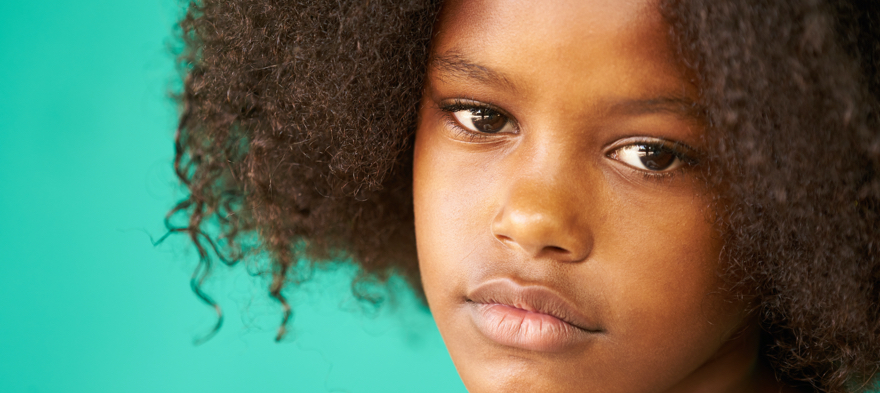
Dec 5, 2019 12:00:00 AM
by Kelisa Wing
At the turn of the century, in 1999, I was graduating from high school, motivated to enter the teaching profession with a passion to reform school discipline practices and eliminate the school-to-prison pipeline. This drive to dismantle disparate systems led me to advocate, speak and even write a book to spread awareness of this problem in our schools. However, 20 years later, we are still trying to figure out how to close the school-to-prison pipeline.
As we close out this decade, it is important to pause and reflect upon how far we’ve come, and how far we still need to go.
At the start of the decade, nationwide data showed that African-American students were three times more likely to be suspended than White students. Today, Black students are now four times as likely to be suspended from school as White students. Hispanic students, special needs students and LGBTQ+ students are at risk of being disproportionately disciplined as well.
Unfortunately, [pullquote]we still have a long way to go to realize equity and to improve conditions for all students.[/pullquote] It is hurtful and disappointing to realize this sad fact.
In 2014, Arne Duncan said, “Education is the civil rights issue of our time,” and when we exclude students for disciplinary issues, we deny them that right to an education. The Obama administration took the strongest stance we've seen from any other administration on school discipline and released discipline guidance in 2014 that promoted restorative justice, inclusion and safety above exclusionary practices.
For students who face discrimination based on their ability level, their zip code or their skin color, this was an important milestone. Unfortunately, the current administration, under Betsy DeVos, claimed that the policy created an unsafe environment in schools and rescinded it in 2018.
The definition of insanity is doing the same thing over again and expecting a different result. One positive aspect of what has happened in our schools, as it pertains to discipline, is that although the current administration rescinded the discipline guidance, many schools are still following it. The thing is, as educators, we have the autonomy to create whatever environment we want to in our classrooms and in our schools. We don’t have to wait for an administration to tell us how or how not to treat our students.
Next month we will welcome 2020, and many education organizations have advertised conferences with the theme of having a "20/20 vision" for education.
If there is one thing I have learned, [pullquote]it is that it’s not enough to just see—we have to envision the system we want for our babies and then we need to create it.[/pullquote] We have admired this problem for far too long, and I am tired. It is no different today than it was in 1999 and 2009.
In the next decade, I hope we can take off the blinders and see the injustices in our education system for what it truly is—biased, inequitable and racist. I hope in 2020 we can create antiracist spaces for our students. I hope we no longer need to have these conversations about the disparities that exist for our Black and Brown students—because we can no longer accept the status quo when it comes to our children’s futures. [pullquote position="right"]It can no longer be business as usual when it comes to equity, and it can no longer be acceptable to just talk about it—it is time to be about it![/pullquote]
In 2020, let’s commit to doing what is best for every child, commit to not just examining, but to eliminating our biases, and let’s commit to doing better in this next decade for our children. The time is now, not the next decade, but now.
We are now faced with the fact that tomorrow is today. We are confronted with the fierce urgency of now. In this unfolding conundrum of life and history, there "is" such a thing as being too late. This is no time for apathy or complacency. This is a time for vigorous and positive action.
Martin Luther King, Jr.
Kelisa Wing is the author of "Weeds & Seeds: How To Stay Positive in the Midst of Life’s Storms" and "Promises and Possibilities: Dismantling the School to Prison Pipeline" (both available on Amazon). She also is a 2017 State Teacher of the year, speaker, teacher and activist for discipline reform. Kelisa holds a bachelor’s degree in English from the University of Maryland University College, a master of arts in secondary education and an educational specialist degree with a concentration in curriculum, instruction and educational leadership from the University of Phoenix. She is currently enrolled at Walden University in the doctor of education program. All views expressed are her own and do not reflect the views of any others.
Few issues in education spark more tension and debate than standardized testing. Are they a tool for equity or a burden on students? A necessary check on school systems or a flawed measure of...
Charter schools are public schools with a purpose. Operating independently from traditional school districts, they're tuition-free, open to all students, and publicly funded—but with more flexibility...
Despite the benefits of a diverse teaching force, prospective teachers of color fall out of our leaky preparation pipeline at every stage: preparation, hiring, induction, and retention. Here’s what...
Ed Post is the flagship website platform of brightbeam, a 501(c3) network of education activists and influencers demanding a better education and a brighter future for every child.
© 2020-2025 brightbeam. All rights reserved.
Leave a Comment